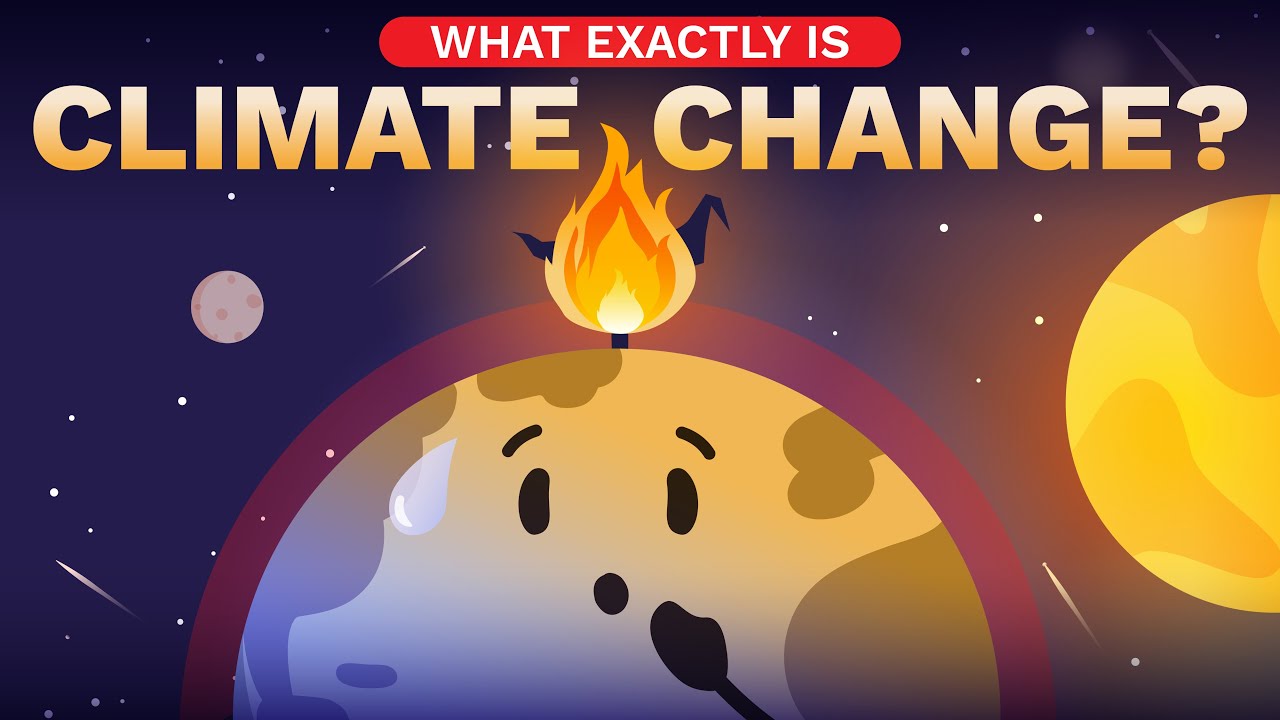The Pope, The Poor, and the Planet: Overcoming Insularity via Integral Ecology
Summary
TLDRThis script discusses the environmental crisis, emphasizing the need to understand its complexity and the exponential growth of issues like greenhouse gases. It highlights Pope Francis's reflections on the roots of the crisis, including technocracy and misguided anthropocentrism. The speaker outlines the importance of flattening the carbon and risk curves through economic restructuring and social adaptation. The ethical dilemma of climate change is also addressed, touching on justice and fairness amidst global environmental challenges.
Takeaways
- 🌱 **Understanding Complexity**: Recognize the multifaceted nature of environmental issues and the interconnectedness of ecological systems.
- 📈 **Exponential Growth**: Grasp the concept of exponential growth as seen in pandemics, economic development, and environmental crises, which starts slow but accelerates rapidly.
- 🌡️ **Climate Change Indicators**: Monitor indicators like greenhouse gas emissions and rising temperatures, which are growing exponentially and causing environmental harm.
- 🌊 **Sea Level Rise**: Be aware that sea levels are rising, with the western Pacific experiencing one of the fastest rates, impacting coastal areas and freshwater systems.
- 🏙️ **Urban Planning and Adaptation**: Emphasize the need for urban planning and social reform to adapt to environmental changes and reduce risk to communities.
- 🌿 **Flattening the Carbon Curve**: Advocate for strategies to reduce carbon emissions and stabilize the atmosphere, restructuring the economy away from fossil fuels.
- 💡 **Technological Solutions**: Acknowledge the role of technology in addressing environmental issues, but also recognize the limits of a technocratic approach that overlooks ethical considerations.
- 🌐 **Global Responsibility**: Understand that while economic growth and carbon emissions vary by country, the consequences of climate change are global, highlighting the need for collective action.
- 🌱 **Ethical Considerations**: Reflect on the ethical dimensions of environmental crises, including issues of justice and fairness in resource use and the distribution of environmental impacts.
- 🌟 **Human Place in Nature**: Reevaluate human's place in the universe, avoiding extremes of human exceptionalism or inferiority, and embracing a balanced stewardship of the environment.
Q & A
What is the main focus of the speaker's reflections on the environment?
-The speaker's reflections focus on understanding the complexity of the environmental crisis, exploring the roots of the crisis as outlined by Pope Francis, and discussing possible responses to the crisis, including practical steps individuals can take.
What is the significance of the exponential growth equation mentioned in the script?
-The exponential growth equation is significant as it illustrates how changes in variables, such as greenhouse gas emissions, can lead to rapid and potentially uncontrollable growth over time, much like the exponential spread observed during pandemics.
How does the speaker relate the concept of exponential growth to environmental issues?
-The speaker relates exponential growth to environmental issues by explaining that the release of carbon into the atmosphere has been growing exponentially, leading to a rise in temperatures and associated risks, which also increase at an accelerating rate.
What is the 'carbon curve' referred to in the script, and why is it important to flatten it?
-The 'carbon curve' refers to the graph showing the increasing levels of carbon emissions over time. It is important to flatten this curve to stabilize carbon emissions and mitigate the exacerbation of climate change.
What does the speaker suggest as a solution to the rising sea levels mentioned in the script?
-The speaker suggests that to address rising sea levels, it is necessary to both reduce carbon emissions to slow the rate of increase and adapt to the changes by planning and restructuring our cities and land use to minimize the impact on communities.
How does the speaker connect the issue of climate change to ethical and social concerns?
-The speaker connects climate change to ethical and social concerns by highlighting the differentiated impacts of climate change, where some countries contribute more to carbon emissions but all countries face the consequences, raising questions of fairness and justice.
What are the two main causes of the environmental crisis identified by Pope Francis according to the script?
-According to the script, Pope Francis identifies technocracy, or the blind faith in technology to solve problems, and misguided anthropocentrism, or a misguided sense of human place in the universe, as the two main causes of the environmental crisis.
What is the ethical problem associated with climate change as discussed in the script?
-The ethical problem associated with climate change, as discussed in the script, is the issue of justice and fairness, where some countries contribute more to carbon emissions while all countries face the consequences, leading to debates over responsibility and action.
What is the importance of understanding the 'roots of the crisis' as mentioned in the script?
-Understanding the 'roots of the crisis' is important because it provides insight into the underlying causes of the environmental issues, allowing for more effective and targeted solutions to be developed.
What are the '10 simple steps' the speaker hopes to share in the next lecture?
-The '10 simple steps' are not detailed in the provided script, but the speaker intends to share them in the next lecture as practical actions individuals can take to contribute to the solution of the environmental crisis.
How does the speaker use the concept of 'flattening the curve' in relation to climate change?
-The speaker uses the concept of 'flattening the curve' to describe the need to slow down the rate of increase in carbon emissions and the associated risks, similar to the approach taken during the pandemic to slow the spread of the virus.
Outlines

このセクションは有料ユーザー限定です。 アクセスするには、アップグレードをお願いします。
今すぐアップグレードMindmap

このセクションは有料ユーザー限定です。 アクセスするには、アップグレードをお願いします。
今すぐアップグレードKeywords

このセクションは有料ユーザー限定です。 アクセスするには、アップグレードをお願いします。
今すぐアップグレードHighlights

このセクションは有料ユーザー限定です。 アクセスするには、アップグレードをお願いします。
今すぐアップグレードTranscripts

このセクションは有料ユーザー限定です。 アクセスするには、アップグレードをお願いします。
今すぐアップグレード5.0 / 5 (0 votes)






